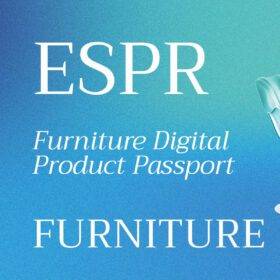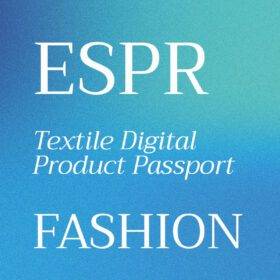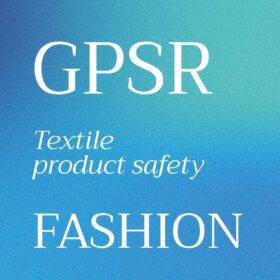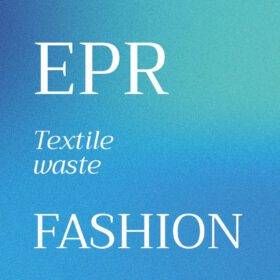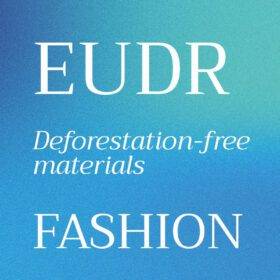In this article, we delve into the Digital Product Passport Regulation, formally known as the Ecodesign for Sustainable Products Regulation (ESPR), and its implications for the fashion, clothing, textile and apparel sector. The ESPR – Regulation (EU) 2024/1781 – aims to reduce the environmental impact of products placed on the European market by improving their durability, efficiency and recyclability. In the fashion industry, it introduces new requirements that compel brands and manufacturers to rethink product design starting from raw materials, ensuring transparency throughout the entire production chain.
Reading time: 4 minutes
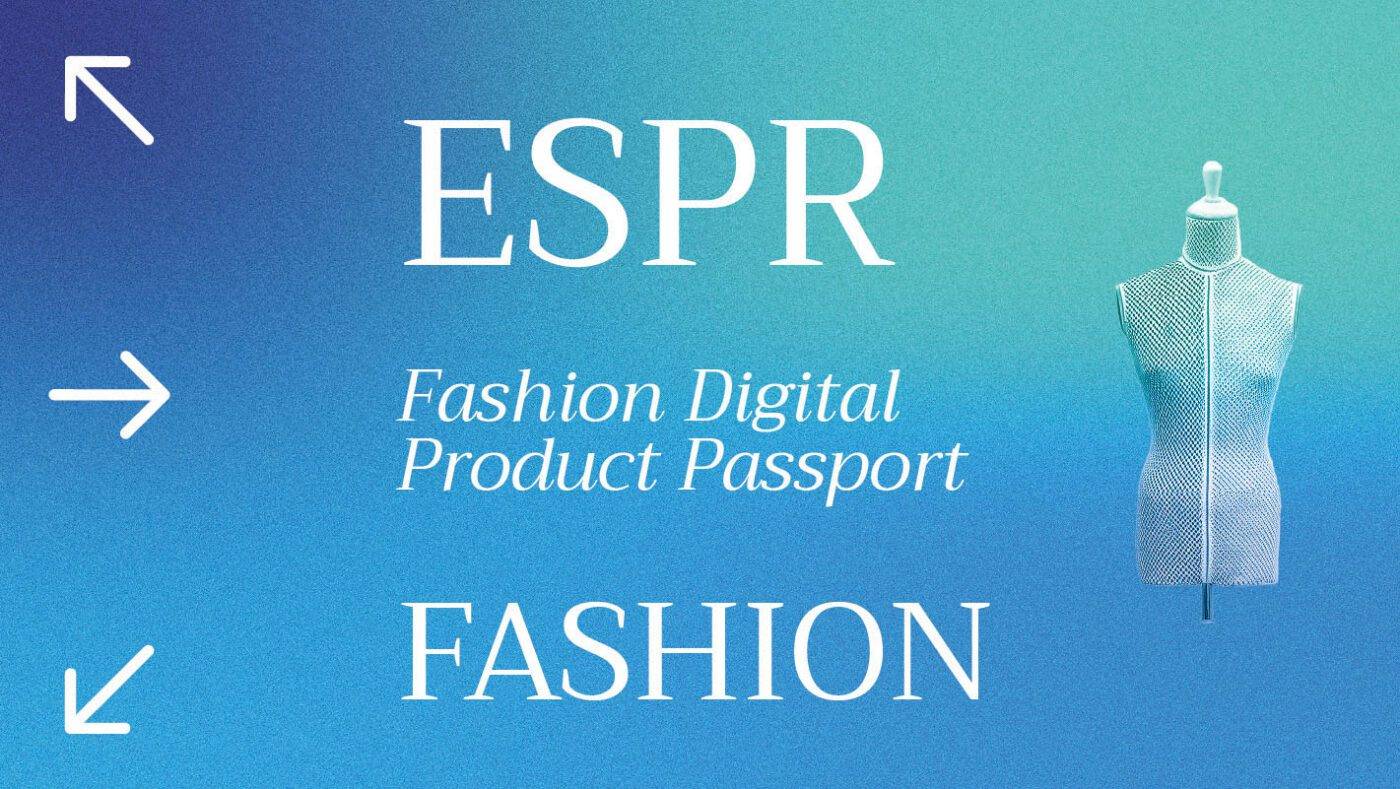
Index
- ESPR: what are the requirements for the fashion industry?
- Digital Product Passport Regulation in fashion and the role of Circular Fashion
- Deadline for ensuring compliance with the ESPR
- The Digital Product Passport not only ensures compliance, but also creates opportunities
- Explore the latest news on the Ecodesign Regulation (ESPR)
- Discover the other EU Regulations in the fashion, clothing, textile, and apparel sector
ESPR: what are the requirements for the fashion industry?
The Ecodesign for Sustainable Product Regulation (ESPR) establishes eco-design criteria, which will be detailed through delegated acts specific to each sector or product category:
- Durability, repairability, and reusability: products must be designed to last longer and be easier to repair.
- Recyclability: the use of recycled materials will be encouraged, along with the reduction of harmful substances.
- Resource efficiency: the regulation aims to minimize the environmental impact of the product’s entire lifecycle, from production to disposal.
- Ban on destruction of unsold products: Efforts to minimize the destruction of unsold goods, with obligations to report quantities and measures taken to prevent it.
- Information and transparency: A requirement to provide information on the environmental impact of products. This information must be made clear and accessible, for example through updated labels or a Digital Product Passport.
Digital Product Passport Regulation in fashion and the role of Circular Fashion
The adoption of the Digital Product Passport Regulation (EU ESPR) promotes so-called Circular Fashion, a model in which garments are designed to last longer, be repaired, reused and recycled. Its main goal is to reduce environmental impact and address the issue of waste: to date, 73 percent of textiles end up in landfills or are incinerated, and less than 1 percent is regenerated into new garments. To support this transition, the regulation encourages the use of recycled materials, the reduction of polluting substances and more efficient production processes. In this context, the Digital Product Passport is essential for ensuring traceability and transparency throughout the supply chain, helping companies and consumers make more sustainable choices.
Deadline for ensuring compliance with the ESPR
The Ecodesign for Sustainable Products Regulation (ESPR) entered into force on 18 July 2024.
Subsequently, the first Working Plan 2025–2030 was adopted on 16 April 2025, setting a priority schedule for the product categories subject to the new ecodesign requirements. In particular, it establishes deadlines for the adoption of product-specific delegated acts that will define the applicable rules.
Among the sectors involved, textiles will be addressed first, with delegated acts expected to be adopted by 2027. By contrast, footwear is currently excluded from the scope and will be the subject of further studies for potential future regulatory action.
The Digital Product Passport not only ensures compliance, but also creates opportunities
Made in Block’s Digital Product Passport, integrated with blockchain and AI technologies, supports textile companies in enabling supply chain traceability, allowing them to reliably communicate product qualities to the end customer. As a result, the consumer gains a new touchpoint to interact with the production process and access advanced services. Furthermore, the integration of stakeholders across the market fosters more ethical and competitive business models. By adopting Made in Block’s Digital Product Passport, companies gain the tools to understand, based on their specific needs, the necessary steps to comply with the ESPR regulation. Ultimately, beyond regulatory compliance, the Digital Product Passport marks the beginning of a value-driven strategy that differentiates your product in the marketplace.
Are you curious about how to adjust your company to the ESPR Regulation and use the Digital Product Passport (DPP)? Contact us for a free consultation!
Explore the latest news on the Ecodesign Regulation (ESPR)
- ESPR for furniture and design: the compliant software solutionIn this article, we explore the ESPR regulation for furniture… >
- Digital Product Passport Regulation – EU ESPR for FashionIn this article, we delve into the Digital Product Passport… >
- ESPR Working Plan 2025–2030: what you need to know nowThe ESPR Working Plan 2025–2030 has been officially published. It… >
Discover the other EU Regulations in the fashion, clothing, textile, and apparel sector
- Digital Product Passport Regulation – EU ESPR for FashionIn this article, we delve into the Digital Product Passport… >
- GPSR EU Fashion & Apparel: safety of textile productsThe General Product Safety Regulation (GPSR), fully effective from December… >
- EPR textile waste – The solution for the Extended Producer ResponsibilityThe European Commission has proposed an amendment to the Waste… >
- EUDR EU for leather and fashion: obligations, traceability and DPPThe EUDR EU regulation on leather and fashion governs the… >









